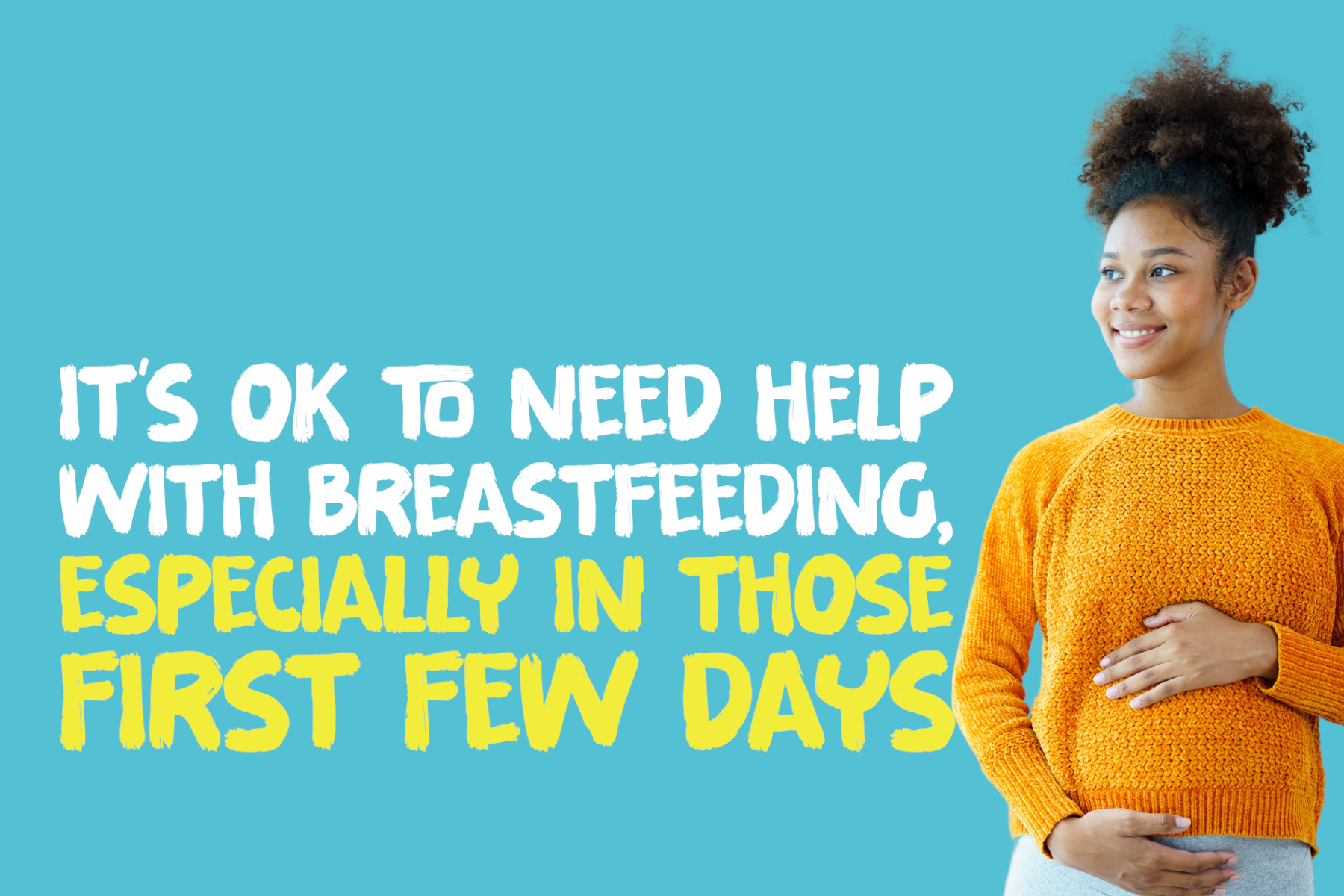


Breastfeed for the benefits
The Halton Infant Feeding team is here to support you through your breastfeeding journey to ensure you and your baby get the biggest benefits.

How do you plan to feed your baby?
It’s never too early to start thinking about how you plan to feed your baby or how you would like to.
Depending on what stage of pregnancy you’re at, you may have already made up your mind. However, it can still be something you think about right up until your baby is born.
Therefore, it’s important you have all the facts and understand the support that is available to you so you can make the best choice for you, your baby and your family.
How long do you have to breastfeed for?
Any amount of breastmilk has benefits, and the longer you breastfeed, the better it is for you both.
NHS guidance recommends that breastmilk is all you need to feed your baby from birth until they are at least 6 months old. However, we have broken it down into stages. This will help you understand the benefits of breastfeeding for you and your baby as you reach each milestone.
Don’t forget, it’s ok to need help. Support is available at every stage of your breastfeeding journey from Halton’s Infant Feeding Team.
Breastfeeding in baby steps delivers huge benefits
-
The first milk your body produces is a fluid called colostrum. It’s thick and often a golden yellow colour. Your baby’s stomach is very small at this stage and because your breastmilk is so highly concentrated, they’ll only need a small amount at each feed.
Your newborn may want to feed quite often, perhaps every hour to begin with. The essential nutrients and antibodies help to build their immune system and kick start your milk supply.
It is also a great opportunity for skin-to-skin contact, which not only helps you to bond with your baby, but helps you to keep your baby warm, calm and steady their breathing.
Even if you don’t plan to breastfeed long term, doing it for these first few days can still benefit your newborn.
If your baby is in a neonatal or special care unit after birth, your birthing team will help you with skin-to-skin contact and feeding them your colostrum.
It’s ok to need help with breastfeeding, especially in those first few days. Reach out to your midwife, health visitor and Halton’s Infant Feeding Team for support.
-
One of the biggest benefits of breastfeeding is that your breastmilk adapts according to your baby’s growing needs.
Breastfeeding can help protect your baby from common illnesses, such as colds or other bacterial and viral infections. The amazing thing is that your antibodies can be passed to your baby through breastfeeding, giving them extra protection and lowering their chances of getting ill.
Breastfeeding your baby when they are unwell can help to speed up their recovery too, because your breastmilk can help provide them with the antibodies, fluids and nutrients they need.
-
The longer you breastfeed, the more long-term benefits for your baby. These can even last right into adulthood.
Breastfeeding supports your baby’s brain development as they grow. It can also offer long term protection against common illnesses, food allergies and asthma that can sometimes lead to increased hospital visits.
While you breastfeed, your body also releases a hormone called oxytocin. This not only supports milk production, but it has also been shown to decrease sensitivity to pain, promote healing, and reduce stress and post-natal depression. It can also lower blood pressure in both mums and infants.
Breastfeeding also helps to return your uterus to pre-pregnancy size.
-
It's extremely difficult to overfeed a breastfed baby. They have a natural ability to regulate their own intake and will signal when they are hungry or full by either turning towards or away from the nipple. Trusting their instincts ensures they receive the right amount.
As your baby grows, they will go through different feeding patterns. Responsive feeding means tending to yours and your baby’s needs. Therefore, if your breasts are uncomfortably full or if you just want to spend time with your baby, offer them a feed.
Breastfeeding can also aid the development of your baby’s jaw muscles and alignment because of how they use their tongue during feeding. It can regulate their digestion because it is made precisely to their needs, and the fact it helps to regulate their appetite can reduce the risk of childhood obesity too.
-
From 6 months and beyond, giving your baby breast milk alongside solid foods for as long as you and your baby want will help them grow and develop healthily.
Breastfeeding can protect your baby from digestive illnesses; ear and chest infections; eczema; and diabetes.
Digestive illnesses are common in babies and children. Symptoms include diarrhoea and vomiting. Although breastfed babies may still be at risk, such illnesses are less likely and they should recover sooner. This can also result in fewer hospital visits.
Breastfeeding can also lower your risk of breast and ovarian cancer, weak bones, diabetes and heart disease.

Breastfeeding may not always be easy but the more you breastfeed, the greater the benefits to you and your baby
By taking each day in baby steps, it can feel less overwhelming.
Many parents will have dealt with the same feelings and emotions you are going through and it’s completely normal to need help and support.
Getting your partner involved
Breastfeeding your baby gives you a really special connection with your newborn, but there are plenty of ways dads and partners can bond with a breastfed baby too.
Your partner can help support you and your baby throughout your breastfeeding journey.
They can still enjoy skin to skin contact at any time, they can cuddle your little one and talk to them while they are awake and alert and make sure you’re comfortable with a drink or snack to hand while you’re feeding. They can also help out around the house.
There are plenty of other ways they can get involved too and as your baby grows, there will be so much more they will be able to do.
Most importantly, they can call upon the Halton Infant Feeding Team if they think you need support with feeding!

Infant Feeding Stories
Here’s some stories from parents the Halton Infant Feeding Team have supported recently.
Help with breastfeeding is available every step of the way from Halton’s Infant Feeding Team, your midwife and health visitor.
For one-to-one support or help with finding a local breastfeeding group, visit the following links.
Find out more about the Halton Infant Feeding Team and come along to a friendly breastfeeding group
Book an informal workshop for Antenatal Infant Feeding Support
Download and find out more about Anya - our 24/7 Infant Feeding Support App
Book a free advice session on introducing solid foods to your baby












